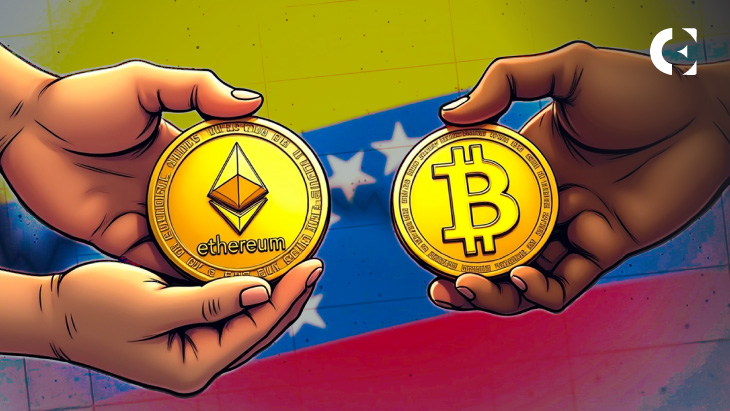- In 2024, crypto usage in Venezuela surged 110% year-over-year, placing the country 13th globally in adoption
- Local currency, the Bolívar, lost over 70% of its value after the government stopped defending it in late 2023, and by May 2025, inflation had jumped to 229%
- From independent street vendors to large national chains, merchants are now accepting crypto via platforms like Binance and Airtm, and are even paying employees in stablecoins
Venezuela is increasingly turning to cryptocurrencies (especially USDT) as a financial lifeline amid economic collapse. According to the Chainalysis 2024 Global Crypto Adoption Index, crypto usage in the country surged 110% year-over-year, placing Venezuela 13th globally in adoption.
The local currency, the Bolívar, has had a very steep fall. It lost over 70% of its value after the government stopped defending it in late 2023, and by May 2025, inflation had jumped to 229%.
Faced with declining wages, collapsed currency, and restricted banking access, people and businesses alike are aggressively adopting stablecoins like USDT as a more reliable store of value and medium of exchange.
Related: Bitget Wallet and Immersve Launch USD-Based Crypto Card in Brazil, Eye Latin America Expansion
What once seemed like a niche use case has gone mainstream. From independent street vendors to large national chains, merchants are now accepting crypto via platforms like Binance and Airtm, and are even paying employees in stablecoins. This shift is no surprise, as a tech shop owner in Caracas noted that accepting USDT is becoming a competitive necessity.
Additionally, crypto has found its way into academia. At least one leading university in Venezuela now offers digital finance or blockchain courses to educate the next generation of users and professionals.
Adoption driven by necessity
Interestingly, according to data from February, crypto adoption is rising fast across Latin America. Around 57.7 million people are crypto owners, which represents about 12.1% of the population.
Unfortunately for Venezuela, this widespread adoption isn’t driven by a desire for innovation but by necessity. The rampant inflation, meager wages, scarcity of foreign currency, and limited access to conventional banking services are all compelling citizens to turn towards digital assets.
Yet despite demand, adoption doesn’t come without obstacles. For example, US sanctions limit access to crypto platforms, and some users find Binance restricted in Venezuela. In addition, there are infrastructure challenges like poor internet connectivity that still hamper consistent use.
Related: Tether’s On-Chain Footprint Hits 40% of All Fees Following Supply Surge to $157 Billion
PDVSA’s (Venezuelan state-owned oil and natural gas company) use of USDT for oil and fuel exports predates this shift, but as sanctions intensify, crypto may underpin even larger transactions in the economy.
Still, considering the country’s situation right now, crypto will likely stay an essential financial tool for both individuals and corporations.
Disclaimer: The information presented in this article is for informational and educational purposes only. The article does not constitute financial advice or advice of any kind. Coin Edition is not responsible for any losses incurred as a result of the utilization of content, products, or services mentioned. Readers are advised to exercise caution before taking any action related to the company.







